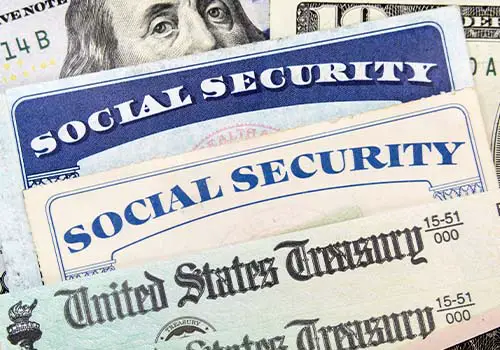Individuals receiving Social Security disability benefits have a medical condition that prevents them from obtaining employment or engaging in substantial gainful activity. SSDI beneficiaries often want to try to return to work, but they fear that they may lose their SSDI benefits or Medicare coverage.
The Social Security Administration noticed that very few SSDI recipients make it back into the workforce, so it designed the Ticket to Work program to help those beneficiaries who wanted to return to work. This program provides many great benefits and protections for SSDI beneficiaries who want to try working again. Keep reading as we give you all the details about this important program.
What Is The “Ticket to Work” Program?
Free Assistance
The Social Security Administration (SSA) designed the Ticket to Work program, which President Bill Clinton signed into law in 1999. This program helps disabled workers between the ages of 18 and 64 return to the workplace. It is free and completely voluntary, but it provides many wonderful benefits to the individuals who are eligible. Program participants can use free vocational rehabilitation services, such as job training, resume writing, job placement, and other services.
Employment & Training Services
Upon starting the program, the participant will select an employment network or vocational rehabilitation facility. Once you choose the services you wish to use, you will work with them to develop a career plan. Your “ticket” will be assigned to the service provider you selected, and the Social Security Administration will pay them. You will work to make progress toward your career goals, and the employment services provided to you will not cost you anything.
The program is designed to increase self-sufficiency among Social Security disability insurance recipients. The program helps many people return to work and become financially self-sufficient.
KEY TAKEAWAYS
- The Ticket to Work program provides SSDI and SSI recipients with free resources and incentives to help them reenter the workplace.
- Some Ticket to Work incentives include a trial work period, expedited reinstatement, exemption from disability reviews, and extended Medicare coverage.
- The Trial Work Period is the most significant incentive and allows you to work for nine months (unlimited earnings) while still receiving your disability benefits.
Who Qualifies For The Ticket To Work Program?
You might be wondering what the eligibility requirements for the Ticket to Work program are. Many people can qualify for the program, so here is what you need to know about the eligibility criteria. First, the program is available to recipients of Social Security Disability (SSDI) and Supplemental Security Income (SSI) beneficiaries. The program is available to almost all benefit recipients in both of these programs, with a few exceptions. If you meet any criteria in the next paragraph, you are not eligible to participate in the program.
Ineligible for the Ticket to Work Program
- If your medical condition is expected to improve but you have not yet had a continuing disability review, you will not be eligible to participate.
- However, if you have received disability benefits for three years without a review, you become eligible.
- Those individuals who have reached age 18 but continue to receive SSI benefits under the child standards are not eligible to participate in the Ticket to Work program.
- If you receive temporary benefits under the expedited reinstatement rules or advance benefit payments for presumptive disability, you will not be eligible to participate.
- Those receiving only state-funded SSI benefits and no federal money will not qualify.
- Individuals receiving continued benefits while appealing a medical cessation decision are ineligible.
Those receiving SSI or SSDI disability payments who do not meet the abovementioned criteria will be eligible to participate in the Ticket to Work program.
Must read articles related to Social Security Benefits
- A complete guide on “How to Apply for Disability?“
- Learn more about what conditions qualify for disability.
- You may be entitled to SSDI back payments…read “How to track my disability back pay?”
- Understand the difference between SSI vs SSDI and if you qualify for either one.
- A complete guide on “How to Apply for SSI.“
Getting Started With Ticket To Work
So, how can Social Security disability beneficiaries get started with the ticket program and gain financial independence? Here is how to get started.
Contact SSA Helpline
First, you should contact the SSA Ticket to Work helpline associated with the program at 1-866-968-7842. A representative will answer all your questions about the program and send you a list of available providers in your area.
Search Providers Online
You can also use the program’s online Ticket to Work tool to find providers in your area. Once you find a provider you wish to work with, you will assign them your “ticket.” This begins your participation in the program.
Set Goals with Provider
You will then work with your selected provider to identify your employment goals and devise a plan to achieve them. Participation in the program is free and voluntary, but your participation requires you to make progress toward the employment goals you identified. Although you will not be subject to a continuing disability review during your time in the program, Social Security performs annual reviews to ensure that you progress toward your goals. Your participation in the program can last up to seven years. If SSA finds that you are not progressing toward your goals, then you might become subject to a disability review once again.
Trial Work Periods
In addition to the free help and employment support services provided by the program, the Social Security Administration provides many work incentives as part of the program. Many people think that returning to work will cause their disability benefits to stop immediately, but that is not the case in this program. We will discuss these incentives in more detail later in this article.
What You Need To Know About The Trial Work Period
The trial work period is one of the incentives provided to SSDI recipients participating in the Ticket to Work program. It allows program participants to return to work without an immediate loss of their disability benefits, regardless of how much they earned during the period.
- You might already know that earning more than $1,620 per month will typically put an end to your disability benefits. However, there is no limit during your trial work period.
Length of the Trial Period
This trial period lets you test your ability to return to work without worrying that your benefits will be stopped. The trial work period lasts for nine months, although the months do not have to be consecutive.
Whether or not a particular month counts as a trial month depends on how much you earn during the month or how many hours you work. Earning more than $1,160 during a month or working more than 80 hours during a month of self-employment will be considered a trial month.
Extended Eligibility Period
After you have exhausted all nine months of your trial work period, you will enter the extended eligibility period. During this period, it is much easier to have your benefits reinstated if you must stop working due to your disability.
TIP
A side benefit of the Ticket to Work program is getting assistance starting a new business. The provider can assist with business plans, understanding business financials, and more.
Ticket To Work Program Incentives
Trial Work Period
As previously mentioned, the Ticket to Work program provides many work incentives for participants. One of the most significant incentives is the trial work period. During this period, program participants may attempt to return to work and continue receiving their full SSDI benefits regardless of how much income they earn. The period allows for nine months of unlimited earnings, which do not have to be consecutive.
Expedited Reinstatement
Another incentive is the expedited reinstatement period. After your trial work period expires, you enter 3 years of expedited reinstatement. If you must quit your job due to disability, your benefits can be reinstated quickly without going through the entire disability application process.
Exemption from Disability Reviews
Exemption from continuing disability reviews is another incentive the program provides job seekers. As long as you participate in the program and are making timely progress toward your employment goals, you will not be required to participate in any continuing medical reviews.
Extended Medicare Coverage
Finally, the program may allow you to continue your Medicare coverage for up to 93 months after your cash benefits end. So, even though you may no longer receive monthly SSDI payments, you can keep your Medicare coverage for almost eight years while working.
Additional Work Incentives
Agency Grants
Believe it or not, the Ticket to Work program offers additional work incentives beyond those mentioned in the previous section. First, the program authorizes many grants to agencies that assist with work planning and assistance.
State Medicaid Options
The program also encourages states to make their Medicaid programs available to people who earn up to 250% of the federal poverty level. This provides another healthcare coverage option for those individuals who attempt to return to work and become financially self-sufficient.
Starting a Business
In addition to incentives like free career development, benefits counseling, and help with your job search, the Ticket to Work program offers resources for people who wish to start their own businesses. Many participating employment programs and networks have experience assisting individuals with disabilities to start their own companies, which can provide equal opportunity to people who wish to become self-employed.
These resources can assist you with writing a business plan, determining your target market, understanding business financials, and other important aspects of owning a business.
The Bottom Line
The Social Security Administration’s Ticket to Work program provides excellent benefits and incentives to individuals who receive disability benefits but want to return to work.
These individuals can receive free job training and resources, and they are entitled to a trial work period that allows them to earn an unlimited income for nine months while attempting to return to work. They will still receive their full disability benefits during this trial period.
In addition, program participants will not be subject to continuing medical reviews as long as they are making timely progress toward their employment goals. This program is excellent for disability beneficiaries who want to become self-sufficient and return to work.
Frequently Asked Questions
No, you cannot get a second trial work period. However, you might be eligible for expedited reinstatement of your benefits. After your trial work period ends, you will enter the expedited reinstatement period.
During this five-year period, your benefits can be reinstated quickly if you must stop working due to your disability. You might even be entitled to provisional benefits for up to six months while the SSA makes a final determination on reinstating your benefits.
If you earn more than Social Security disability allows, your benefits will be stopped. However, remember that you can earn an unlimited amount during your trial work period without affecting your benefits.
This trial period consists of nine months of unlimited earnings, which do not have to be consecutive. After your trial work period expires, earning more than the Social Security disability earnings limit will cause your benefits to stop. However, you might qualify for expedited reinstatement if you are forced to quit your job due to disability.
There is no limit to the amount you can make during the trial work period. If you earn more than $970 per month, then that month will be considered a trial work month. You are entitled to nine months of trial work, which does not have to be consecutive.
So, if you earned $1,000 in January, $1,200 in March, and $1,500 in June, you would have used three of your nine trial work months. Similarly, earning $20,000 in a single month could still qualify as a trial work month.
After your trial work period, you enter the expedited reinstatement period. This period typically lasts for five years. During this period, you will not receive your monthly cash disability benefits. However, you might still be eligible to keep your Medicare coverage.
You will likely be working and earning more than the Social Security limit during this time. If you are forced to quit your job due to disability, you can have your disability benefits reinstated quickly. You will not be required to go through the entire application process again during the expedited reinstatement period.
You can find a Social Security Administration office near you by using our SSA office locator and searching for your closest location.






